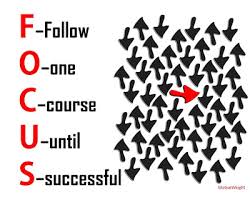Hello! I am back after sometime now to write this blog on direction in doing science.


Direction means depth, direction means that we have proven XXX using the known techniques, now what next? What next that we need to look into is also a matter of understanding and direction. Most of the times, it becomes very boring and monotonous that people fail finding the right direction in proceeding further in science. Rather, it becomes a copying business just to get some experiments done in the same direction that somebody else has done. The quest for knowledge is missing in such cases.
The question is:
- Should you continue in science if such phases arise in your research?
- Why do such phases arise in research?
- Is it common to all to have such phases in research?
Well, the answer is 'YES' to all of the above if you are not spending enough time with yourself pondering about your science and reading enough literature and synthesizing information together to come to a conclusion. So, what one should do to stay motivated in science with proper direction? The answer is
- Think about the science that you are doing. It has nothing to do with proving your science to your peers.
- Once you think enough you will have sufficient questions to answer that can actually guide you in the right direction.
- Once you have sufficient questions, you start looking for the solutions and believe me, one automatically gets subconsciously attracted to the scientific answers.
- And the answers are: Relevant literature that helps one to synthesize information for obtaining the answers or just logical answers.
- Hence, spending time with your science and voracious reading are the most important criteria to stay focussed and motivated in science.
Best wishes to all for doing focussed science!













